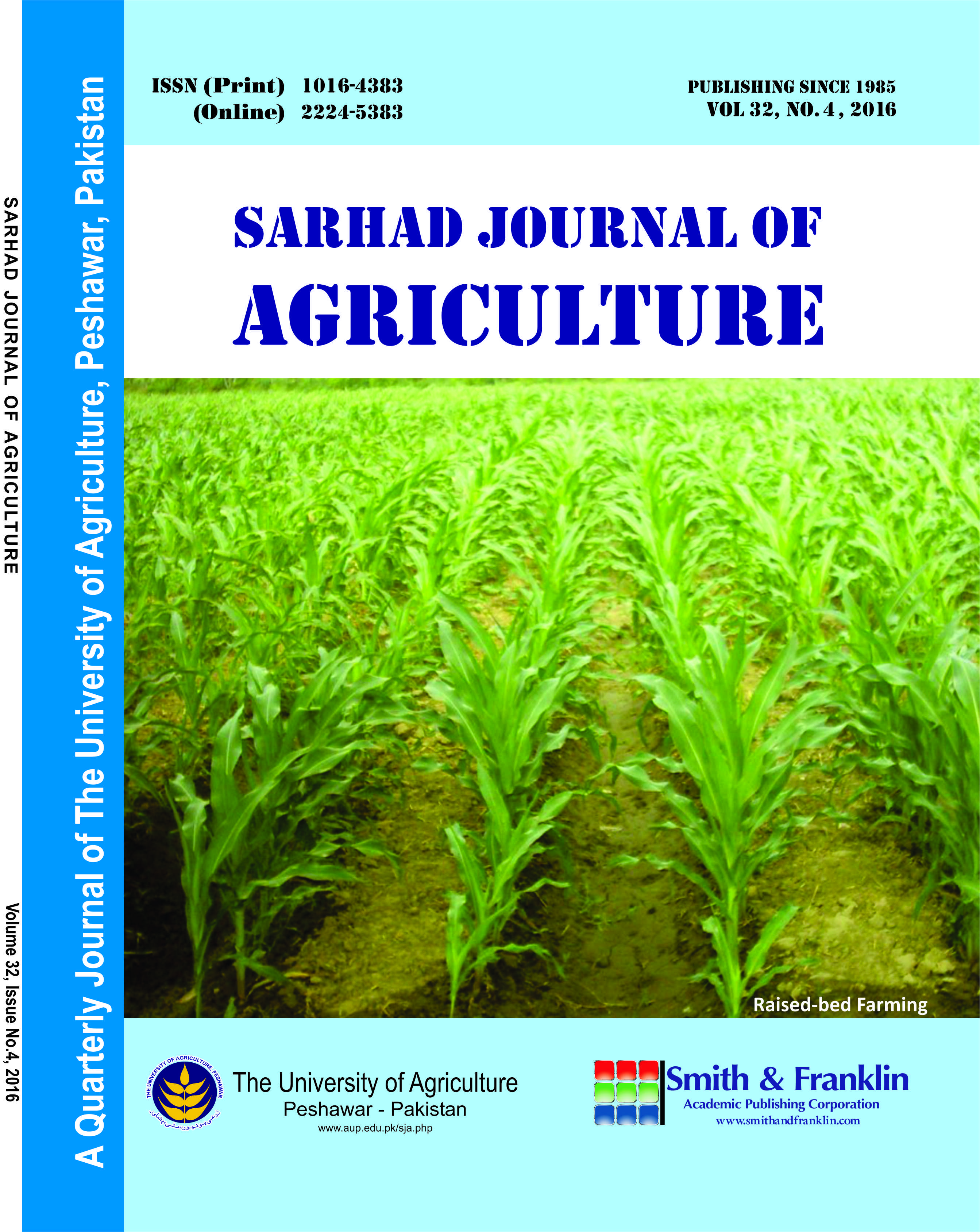Genetic Transformation of Tobacco Serine Acetyltransferase 4 (NtSAT4) gene in Brassica napus L.
Genetic Transformation of Tobacco Serine Acetyltransferase 4 (NtSAT4) gene in Brassica napus L.
Hala Rajab1, Muhammad Sayyar Khan1*, Safdar Hussain Shah1 and Syed Mehar Ali Shah2
ABSTRACT
Defense compounds containing sulfur, play vital roles in the plant’s survival under abiotic and biotic stresses. Cysteine (Cys) is the first organic molecule in the cell containing reduced sulfur and acts as a precursor for many sulfur-containing compounds including Glutathione (GSH). GSH functions to protect the plants against different forms of stresses. In this study, the feedback-insensitive serine acetyltransferase (SAT); a rate-limiting enzyme for Cys biosynthesis from tobacco i.e. NtSAT4 was successfully cloned into three types of overexpression constructs i.e. pBinAR_NtSAT4 (targeted to cytosol), pBinAR-TKTP_NtSAT4 (targeted to plastids) and pBinAR-SHMT_NtSAT4 (targeted to mitochondria). For stable transformation of B. napus floral-dip and tissue culture based approaches were tested using different formulations of phytohormones for calli, shoots and roots induction in a variety of genotypes. While false positive lines were obtained in the result of floral-dip method, the tissue culture based method led to successful regeneration of shoots on Murashige and Skoog (MS) media containing BAP 3 mgL-1 and developed roots in ½ MS media supplemented with IBA 3 mgL-1 in case of OSCAR cultivar. Successful selection of transgenic lines was achieved using selective antibiotic kanamycin 50 mgL-1. NtSAT4 gene integration into the plants genome was confirmed by PCR using the NtSAT4 gene specific primers. The positive transgenic lines were successfully acclimatized to soil and glass house conditions. The developed transgenic lines have the potential to overproduce high levels of cysteine and glutathione for enhanced stress tolerance especially against heavy metals.
To share on other social networks, click on any share button. What are these?







